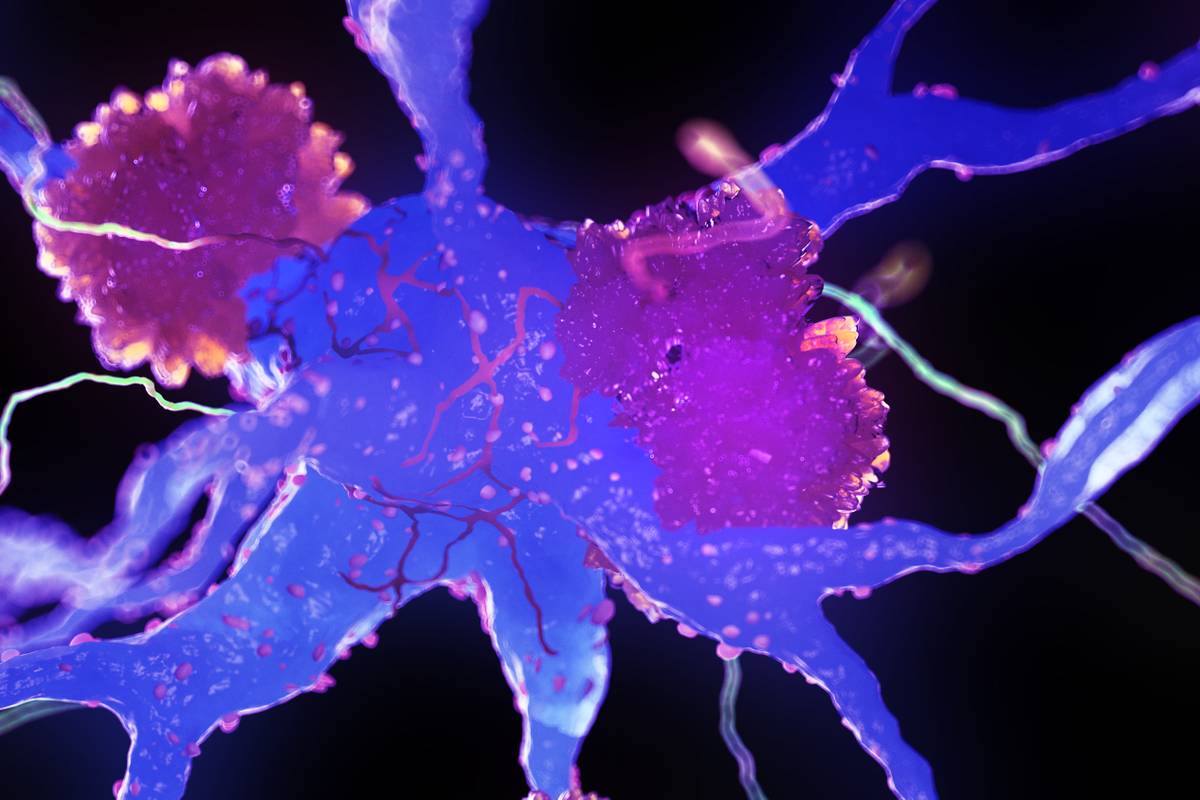You are viewing a preview of...
New Peptide Drug for the Treatment of Alzheimer's Disease
A synthetic peptide restoring neurotransmission in AD-model mice.

Background
Alzheimer’s disease (AD) is estimated to affect about 50 million people worldwide and there are currently no effective treatments. The only approved drugs for AD, i.e. acetylcholinesterase inhibitors and NMDA receptor antagonists, have no effect on preserving neural connections and do not prolong patients’ lives. Cell biological studies related to neurodegenerative diseases have mainly targeted neuronal cell death and post-synaptic dysfunction.
Technology Overview
A team of OIST researchers however has elucidated the pre-synaptic mechanisms of Alzheimer’s disease and found that hyperphosphorylated tau (hTau) causes dynamin deficiency through the assembly of microtubules (MTs) to which the dynamin binds; impairing synaptic vesicle endocytosis and, consequently, signal transmission.
To prevent the toxic effects of hTau and recover signal transmission, the team
Log in or create a free account to continue reading